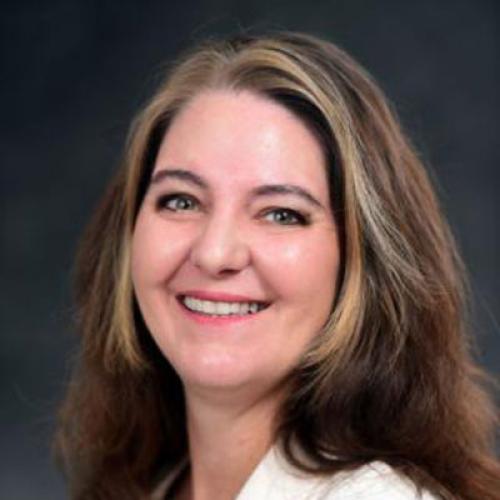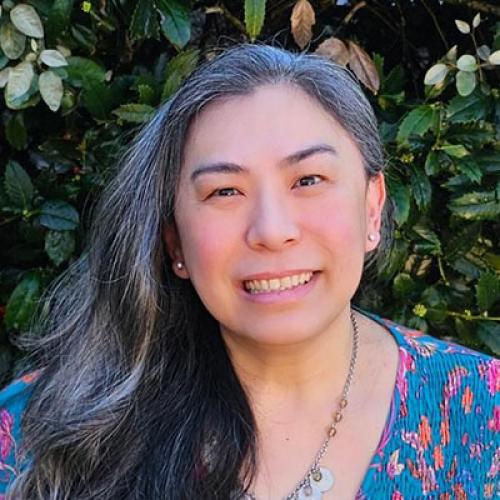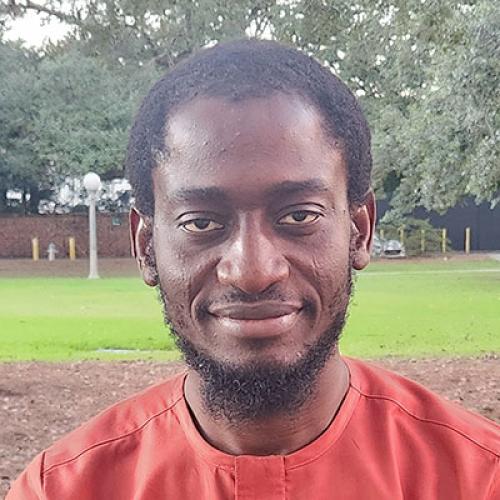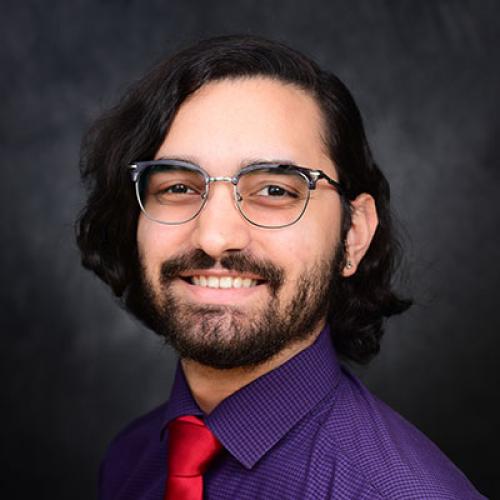The Murphy Institute's Science Policy and Communication Graduate Fellowship program aims to develop future leaders in science, engineering, and technology who can effectively bridge the gap between scientists and various societal stakeholders - the public, policymakers, and industry.
There is a critical need for scientists in the United States to understand and proactively engage with how the interplay between politics and the economy drive societal views on the scientific enterprise. In response, Tulane's School of Science and Engineering established Advancing Science Policy Ethics & Communication at Tulane (ASPECT) to serve as a hub for programs focused on Science Policy, Ethics, and Communication.
The Science Policy and Communication Graduate Fellows Program is the first such initiative to launch under ASPECT. A collaborative endeavor between The Murphy Institute’s Center for Public Policy Research (CPPR) and the Tulane School of Science and Engineering (SSE) and School of Medicine (SOM), the program aims to enhance the understanding and practice of science and engineering policy, ethics and communication as they relate to political economy.
Through the program, fellows will gain skills in science policy and communication, counter negative narratives about science, and advocate for ethical, science-based policy changes. Specifically, this program will train and facilitate PhD-level scientists and engineers to:
- Conduct research and education on science policy and communication.
- Proactively counter negative narratives about science by informing societal stakeholders.
- Effect change in policy that will enable scientists to better address the critical problems facing the region and country.
Call for Applications (Closed)
Applications for the Science Policy and Communication Graduate Fellowship are currently closed. We thank all applicants for their interest and encourage prospective PhD students from the School of Science and Engineering (SSE) and the Biomedical Sciences Graduate Program (BMS) to check back. We anticipate the application will reopen in August of 2026.
Fellowship Details
During the fellowship, students will take one core course specifically designed for the program, focusing on political economy as it relates to science and engineering, research and development, or innovation.
Fellows are also required to attend at least one workshop focused on science communication or science policymaking, such as the American Association for the Advancement of Science (AAAS) sponsored workshop on Catalyzing Advocacy in Science and Engineering (CASE).
Over a two-semester period, the fellows, in conjunction with Tulane or community partners, will work on a research project in one of three areas:
- Science-Related Community Outreach: This project will involve collaborating with existing community organizations or Tulane initiatives to connect science with the public.
- Science Policy Engagement: Fellows will work with policymakers on science and engineering-related legislation or policy issues.
- Science & Economy: This project focuses on the intersection of science and the economy, involving industry, startups, venture capital firms, or relevant Tulane departments.
Fellows will present their research at an annual Science & Engineering and Political Economy Symposium at Tulane.
Current eligibility is limited to PhD students in their 2nd or 3rd year at Tulane University School of Science and Engineering or School of Medicine Biomedical Sciences Graduate Program. Fellows must be in good academic standing in their respective school and hold a primary appointment in a participating school or department.
Successful candidates will have a strong record of excellence in academic coursework and laboratory research with a demonstrated interest in the political economy of science, engineering, or medicine.
Applicants who have overcome adversity because of their individual character, leadership skills, and tenacity, are especially encouraged to apply.
- Fellows will receive a top-up stipend of $5,000 per year for two years.
- Additional stipend support of $10,000 per year for two years will be provided to their home department to offset that portion of the fellow’s Research Assistantship (RA) or Teaching Assistantship (TA) positions.
- It is expected that fellows will continue to conduct teaching and/or laboratory research activities and hence will also be partially supported by TA or RA positions.
- The total compensation for the fellows should be within any bounds set by their department and schools.
The Graduate Fellows Program is looking for scientists and engineers with good communication skills and robust laboratory/research experience, who are also passionate about science policy. The program is open to applicants from all backgrounds and nationalities.
How To Apply
Submit all application materials as a single pdf file to mdahleh@tulane.edu and cc hmachado@tulane.edu.
To receive full consideration, all application materials–including letters of reference–must be received by the published application deadline of September 22, 2025.
Required Application Materials
- An application statement (2 page maximum) that discusses the reasons for applying to the Science Policy and Communication Graduate Fellowship.
- The statement should include pertinent background, skills, attributes, and career goals.
- The statement should also discuss the applicant’s interest in science policy and/ or science communication.
- Outline which of the three areas (Science-Related Community Outreach, Science Policy Engagement, and Science & Economy) is of particular interest.
- A one-page (maximum) non-technical writing sample illustrating the applicant’s communication skills.
- A CV or resume.
- Completed Statement of Support form, signed by the Research Advisor:Document
For more information, contact:
- Marie Dillon Dahleh, PhD, Associate Dean, School of Science and Engineering
- Heather Machado, PhD, Assistant Dean, Tulane School of Medicine
Science Policy & Communication People

| Marie Dillon Dahleh, PhD Director Dr. Dahleh is the Associate Dean for Online and Professional Programs at Tulane's School of Science and Engineering and a Senior Professor of the Practice in Mathematics. In addition to her role with the CPPR Science Policy and Communication Fellowship program, she directs the Gulf Scholars Program, an undergraduate program funded by the National Academies. Her extensive career includes leadership roles at Harvard University, Aurora University (where she founded the engineering program), and UC Santa Barbara. She holds a PhD in applied and computational mathematics from Princeton University. |

| Heather Machado, PhD Co-Director Dr. Machado is an Associate Professor of Biochemistry and Molecular Biology at Tulane School of Medicine and Assistant Dean for the Biomedical Sciences Graduate Program. Her laboratory at Tulane University School of Medicine focuses on understanding the mechanisms that drive mammary gland development, and how these mechanisms are deregulated in breast cancer. She is an active member of the Tulane Cancer Center, the Louisiana Cancer Research Consortium, the American Association of Cancer Research, and the Tumor Microenvironment Women in Cancer Research working groups. |

| Susan Cheng, PhD Murphy Science Policy and Communication Professor Dr. Cheng is an Associate Professor of Social, Behavioral, and Population Sciences and Associate Dean of Public Health Practice for the Celia Scott Weatherhead School of Public Health and Tropical Medicine. She is a trained infectious disease epidemiologist, with a diverse background in STI research, pandemic preparedness, mental health, health disparities, and maternal and child health. Her current research has focused on the effects of social determinants of health on anxiety and depression, maternal mortality, and childhood wellness, including nutrition and dietary allergies. |

| Kaetlyn Ariana Rodriguez 2025 Graduate Fellow Kaetlyn Ariana Rodriguez is a Graduate Fellow in the Science Policy and Communication program at The Murphy Institute and a PhD student in Earth and Environmental Sciences at Tulane's School of Science and Engineering. Her research focuses on ocean chemistry and paleoclimate under the guidance of Professor Yi Wang. Prior to Tulane, she worked at the United States Geological Survey and since joining Tulane, Rodriguez has collected data at the Clark Lab at the Woods Hole Oceanographic Institute. This work led to her presentation of the preliminary results at the 15th International Conference of Paleoceanography in Bengaluru, India. She received her BSc in Environmental Science at the University of California Santa Cruz. |

| Kamyar Sharifi 2025 Graduate Fellow Kamyar Sharifi is a Graduate Fellow in the Science Policy and Communication program at The Murphy Institute and a PhD Candidate in the Biomedical Science Graduate Program at Tulane Medical School, studying biomedical informatics and genomics. He studies how genetics and clinical care intersect. Through the Electronic Medical Records and Genomics (eMERGE) Network, he integrates genomic data with health records under the guidance of Professor David Crosslin. Prior to Tulane, Sharifi received a NIH research training award at the National Human Genomic Research Institute and served as a lab specialist at the University of Virginia. He will be working on a project based on his dissertation work: Genomics in Plain Language: A Community Education booklet for Pulmonary Fibrosis which builds directly on his vision of community-centered science. |

| Abdulhafeez Lukmon, MSc 2024 Graduate Fellow Abdulhafeez Lukmon is a Graduate Fellow in the Science Policy and Communication program at The Murphy Institute and a PhD student in the Materials Physics and Engineering program at Tulane's School of Science and Engineering. Prior to Tulane, he completed his MSc in Materials Science and Engineering from Khalifa University, Abu Dhabi, and received his BSc in Metallurgical and Materials Engineering from the University of Lagos, Nigeria. At Tulane and under the guidance of Professor Matthew Escarra, Abdulhafeez is developing a dynamically tunable optical device from nanostructures of phase change materials, which could prove useful in a wide range of light-based real-world applications. |

| José Irizarry Ayala, MS 2024 Graduate Fellow José Irizarry is a Graduate Fellow in the Science Policy and Communication program at The Murphy Institute and a PhD student in Biomedical Informatics in the Biomedical Science Graduate Program at Tulane School of Medicine. His research interests focus on combining genetic, social, and spatial determinants of health for chronic disease risk prevention and health disparities research. He received his B.S. in Biomedical Sciences from the Interamerican University of Puerto Rico and his M.S. in Biomedical Informatics from the Tulane University School of Medicine. |
